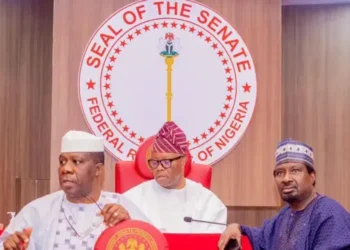Nyamde Azikiwe (1904–1996) was one of the most prominent figures in modern Nigerian history, playing a pivotal role in the Nigerian independence movement and the establishment of the nation-state. Azikiwe was born on November 16, 1904, in Zungeru, a town in northern Nigeria. He was of Igbo descent from southeastern Nigeria. As a child, he was distinguished by his understanding and respect for Nigeria’s diverse cultures and languages, mastering several languages, including Hausa, Yoruba, and Igbo. This knowledge would greatly influence his later efforts to overcome ethnic divisions and promote national unity.
Nyamde’s educational journey began in Nigeria, but he soon traveled to the United States in 1925 to continue his studies. There, he attended several prestigious universities, including Lincoln University, Columbia University, the University of Pennsylvania, and Howard University. He earned multiple degrees and served for a time as a professor of political science at Lincoln University. While in America, Azikiwe was strongly influenced by the repatriation movement and Pan-Africanism, which held the belief that African nationhood should flourish through unity and political and social independence.
Azikiwe returned to West Africa in the mid-1930s and began his career in journalism and politics by founding The African in Ghana (then known as the Gold Coast). Azikiwe used journalism as a tool to criticize the British colonial administration and advocate for African self-rule, and his voice was among the leading national voices calling for independence in West Africa.
In 1937, Azikiwe returned to Nigeria and founded the West African Pilot in Lagos, which became pivotal in mobilizing the resistance movement and the struggle for independence. Through it, Azikiwe advocated for the rights of Africans in Nigeria, criticized the weakness of the colonial administration, and raised national issues related to unity and freedom. In 1944, Azikiwe co-founded the Nigeria-Cameroon National Council (NCNC), a political party that became a major force in Nigerian politics and remains highly influential in the south. Once a prominent national figure, he won a seat in the Nigerian Legislative Assembly in 1948. He continued his rise through the political ranks, serving as Premier of the Eastern Region of Nigeria from 1954 to 1959, then as President of the Nigerian Senate from 1959 to 1960. Following Nigeria’s independence in 1960, he was appointed Governor-General of the country as the Queen’s Representative, and then as the first President of Nigeria in the First Republic from 1963 to 1966.
Azikiwe’s presidency coincided with the early days of independence, a period marked by ethnic and regional tensions in Nigeria, which severely tested its national unity. Azikiwe sought to focus on building a unified Nigerian identity that transcended ethnic divisions, regularly calling for a shift away from tribalism and regionalism, and emphasizing the importance of national loyalty. However, his efforts failed to prevent the escalation of political and ethnic conflicts that ultimately led to a military coup in 1966, which ended his rule.
During the Biafran War, which erupted between 1967 and 1970, as a result of attempts to secede the Igbo-majority Biafra region, Azikiwe found himself in a difficult position. Initially, he supported the secessionist movement, but soon changed his stance, calling for national unity and reconciliation after realizing the disastrous consequences of the war on the country’s unity and future.
Aside from politics, Azikiwe made significant contributions to education and sports. He played a key role in establishing the University of Nigeria, Nsukka, a symbol of higher education in the southeast. He also supported sports as a means of uniting Nigeria’s multiethnic society, establishing the Zik Sports Club, which brought together individuals from various ethnic groups and actively contributed to fostering national spirit through sports.
Azikwe’s history is not without its complexities. He was considered one of the founding fathers of Nigerian nationalism and a staunch advocate of the right of African peoples to self-determination and the construction of inclusive national identities. However, he is also a figure who reflects the challenges associated with governing a multiethnic state. He faced profound internal political conflicts due to these divisions, which were among the factors that led to the severe political upheaval of the post-colonial period.
Nyamdi Azikwe retired from political activity in 1986 and died on May 11, 1996, in Enugu, leaving behind a remarkable legacy that has been immortalized in Nigerian history. His image appears on the 500-naira banknote, honoring his historic role in nation-building.
Nyamde Azikiwe was a pivotal figure in shaping Nigeria’s national identity. Through his journalistic and political career, he helped steer the country toward independence and distinction as a unified nation despite the complex challenges it faced. He embodied the idea long held by African leaders of his generation: that national unity is the greatest force that can ensure the fulfillment of the aspirations of the African people and powerfully confront the internal and external challenges that stand in the way of the continent’s progress.
Azikiwe was a multifaceted figure: a journalist, a thinker, a politician, and a statesman. His life was marked by transformation and conflict, but his impact on the course of Nigerian history is undeniable. He was part of a generation of African leaders who shaped the continent’s post-colonial future, and his legacy remains a subject of debate and analysis to this day.



























































